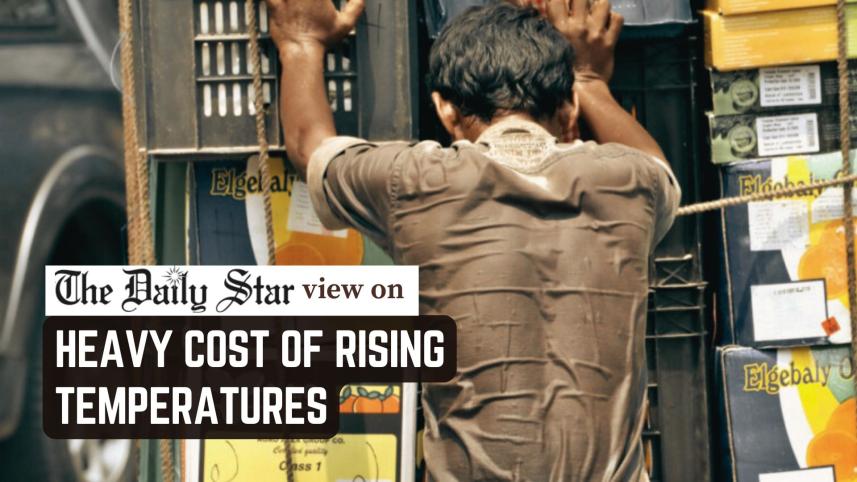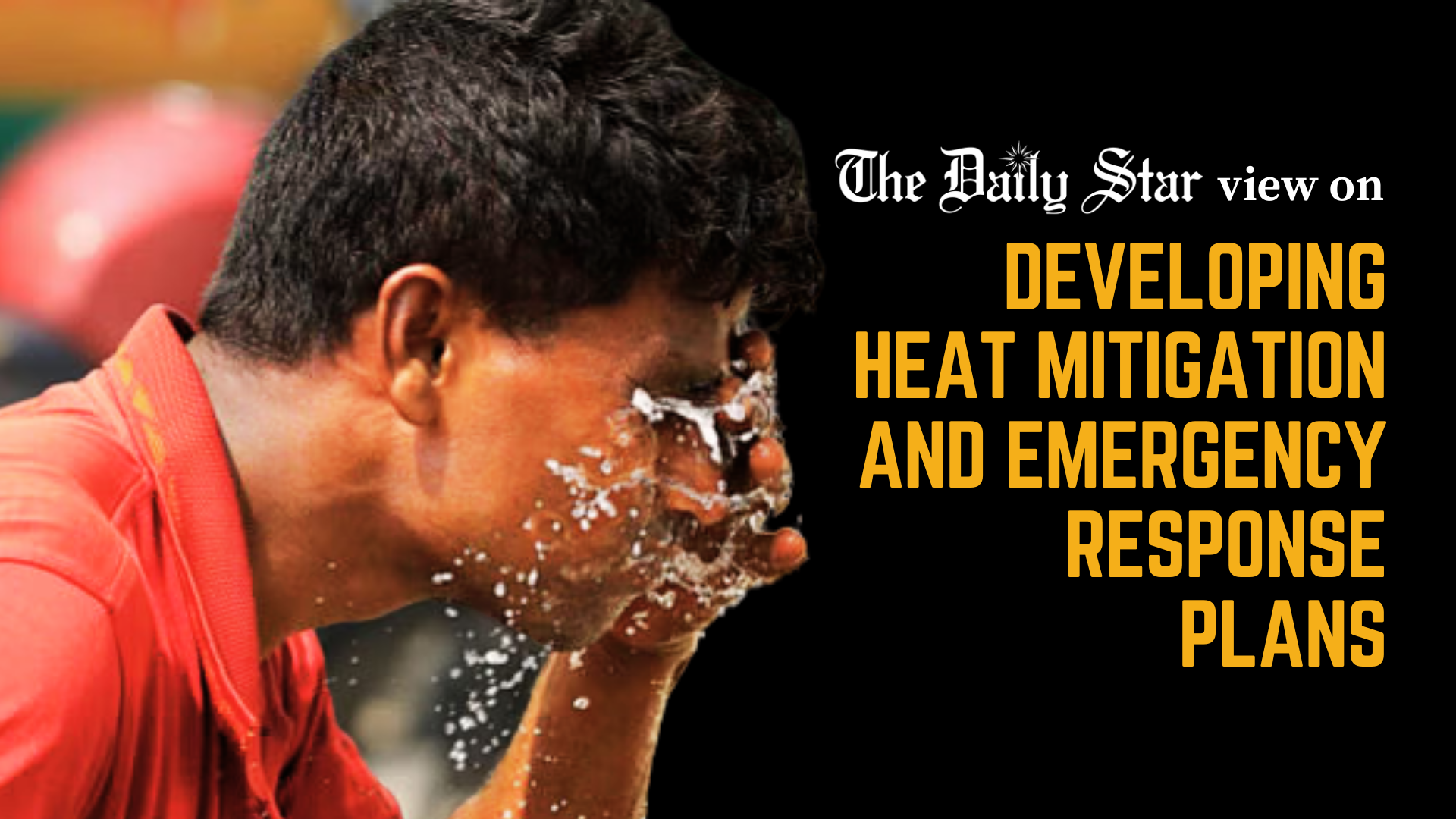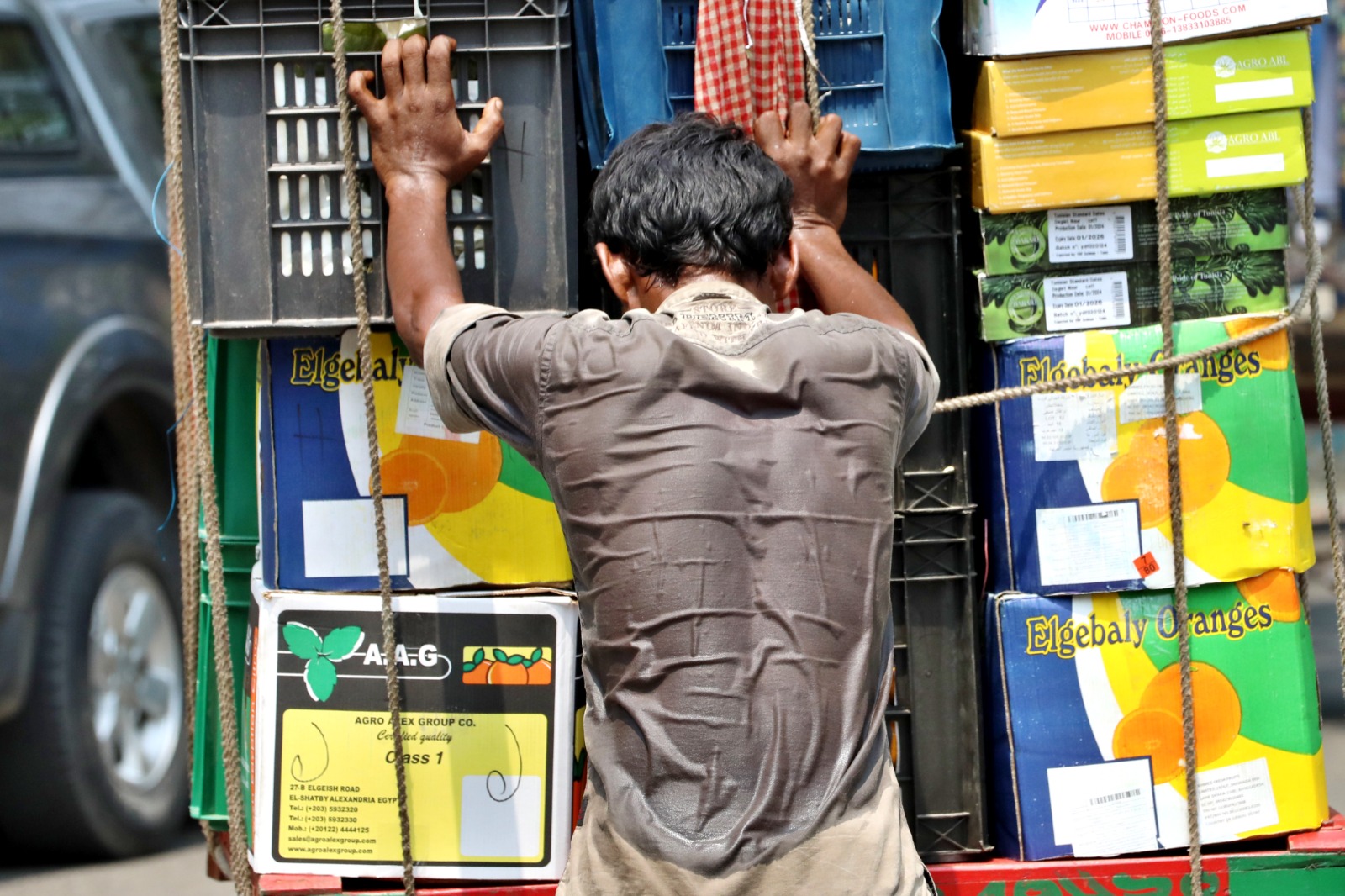Time to re-green our country

The impact of rising temperatures on people's health has been in discussion for quite some time, yet policymakers and businesses have largely remained unresponsive to this threat. In this context, we hope that the World Bank's recent study, which highlights both the health and economic consequences of increasing temperatures in Bangladesh, will finally prompt some meaningful action.
The study estimates that Bangladesh lost 250 million workdays and up to $1.78 billion in 2024 due to heat-related illnesses. Between 1980 and 2023, the country's maximum temperature rose by 1.1 degrees Celsius, with Dhaka experiencing a 1.4-degree increase, making it a hotspot for urban heat. During the same period, the "feels like" temperature has jumped by 4.5 degrees Celsius. Consequently, during summer, more people suffer from persistent coughs, diarrhoea, depression, and anxiety compared to the winter months. The elderly and women are most affected, but people aged 50-65 within the working age group also report these health problems in significant numbers. The study also found that work absenteeism increases with rising temperatures: at 35-37 degrees Celsius, absenteeism averages 0.8 days, but at temperatures above 37 degrees Celsius, it jumps to 1.4 days. Heat disproportionately impacts informal and unskilled workers and the poor, compared to formal, skilled workers and the wealthy.
Development—not just in Dhaka but across the country—has often come at the expense of parks, trees, and water bodies. Yet both private commercial bodies and public institutions continued building at the cost of the environment, violating laws under the guise of progress.
These findings should serve as a wake-up call for policymakers and businesses alike. Economic growth cannot be sustained if workers' health continues to decline due to increases in heat and absenteeism. Dhaka's heat report also deserves scrutiny. Between 1989 and 2020, the city lost 47 percent of its dense green cover, while its temperature continued to rise. Dhaka has also frequently topped global lists for the worst air quality. Development—not just in Dhaka but across the country—has often come at the expense of parks, trees, and water bodies. Yet both private commercial bodies and public institutions continued building at the cost of the environment, violating laws under the guise of progress.
The World Bank report presents glaring evidence that such progress will not be sustainable in the long run. Northern Bangladesh is already paying the price of global warming, with ground and surface water declining at an alarming rate. In the south, global warming is increasing salinity. Both phenomena are likely to increase the number of climate migrants to cities. There is no time for the government to wait for donor funds to address these issues. Whatever can be done at the national level must be done first, including increasing green spaces in cities and preserving forest cover across the country. Political parties must also prioritise environmental issues that impact health and wellbeing over populist policies. Finally, we urge the interim government and those about to follow to strictly enforce environmental laws, stop unplanned urbanisation, and treat rising temperatures and heatwaves as climate emergencies within a comprehensive, multi-sectoral strategy.



 For all latest news, follow The Daily Star's Google News channel.
For all latest news, follow The Daily Star's Google News channel. 

Comments